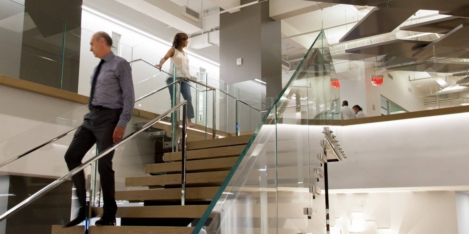May 23, 2018
Flow of gig workers moving in and out of Britain will increase due to Brexit
 UK businesses are already one of the top employers of short contract “gig workers” at an international scale and with Brexit just around the corner, a new survey commissioned by Graebel and carried out by Wakefield Research found that 97 percent of UK Millennials would be interested in relocating to another country for a contract job. After Brexit takes place, nearly three in five (58 percent) British gig workers are more likely to relocate from the U.K. to another EU country for a contract job, and 72 percent of British Millennials answered the same way. Gig workers in each of the top three gig economy markets (UK, US and Singapore), were asked how companies can cater for the needs of this new generation of workers and how to retain their top talent. New York (33 percent), Los Angeles (21 percent) and Paris (21 percent) are the top three picks for UK gig workers looking to relocate. On the other hand, London is still the top choice for US gig workers (33 percent) and second choice for gig workers in Singapore (26 percent).
UK businesses are already one of the top employers of short contract “gig workers” at an international scale and with Brexit just around the corner, a new survey commissioned by Graebel and carried out by Wakefield Research found that 97 percent of UK Millennials would be interested in relocating to another country for a contract job. After Brexit takes place, nearly three in five (58 percent) British gig workers are more likely to relocate from the U.K. to another EU country for a contract job, and 72 percent of British Millennials answered the same way. Gig workers in each of the top three gig economy markets (UK, US and Singapore), were asked how companies can cater for the needs of this new generation of workers and how to retain their top talent. New York (33 percent), Los Angeles (21 percent) and Paris (21 percent) are the top three picks for UK gig workers looking to relocate. On the other hand, London is still the top choice for US gig workers (33 percent) and second choice for gig workers in Singapore (26 percent).

















 With companies holding ever greater amounts of data and facing heightened scrutiny through social media, employers need to consider the wider implications of their business decisions. This was the message of the President of the
With companies holding ever greater amounts of data and facing heightened scrutiny through social media, employers need to consider the wider implications of their business decisions. This was the message of the President of the 
















May 18, 2018
The toxic workplace is not only about culture, but is a very real physical problem
by Johanna Ljunggren • Comment, Environment, Workplace design
(more…)